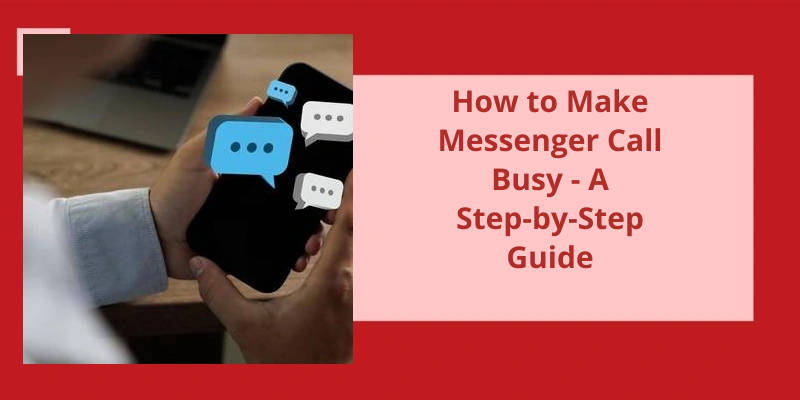In today's fast-paced and ever-evolving world, communication is key to success. One of the fundamental elements of communication is the ability to ask questions. Asking questions helps us understand things better, gain valuable insights and make informed decisions. However, there are certain types of questions that can come across as rude or offensive, especially if they aren’t asked in the right way. Asking "why" questions is one such example. Often, when we ask someone why they did something, they may perceive it as an attack or criticism. As a result, it’s essential to learn how to ask "why" questions without sounding rude or confrontational. In this article, we will explore some tips and strategies that can help you ask "why" questions in a respectful and effective manner. Whether you’re a student, professional, or simply looking to improve your communication skills, these tips can help you build stronger relationships and achieve your goals.
How Do You Ask a Question Without Sounding Rude?
People often have trouble asking questions without sounding rude. It’s important to be polite and considerate when asking for information or help. One way to do this is by using phrases like “can,” “could,” or “would” when making a request. These words help to soften the tone of your question and show that you’re being respectful of the person you’re talking to.
Another technique is to avoid leading with a question word, such as “who,” “what,” “why,” “where,” or “how.”. These words can make your question sound direct or demanding, which can come across as rude. Instead, try to ease into the question by starting with a statement or context that will help the person understand what youre asking for.
It’s also important to be mindful of your tone of voice and body language when asking a question. Even if you use polite language, a harsh or confrontational tone can make you sound rude. Try to speak calmly and clearly, and avoid interrupting the person or raising your voice.
If youre not sure how to phrase your question politely, consider practicing with a friend or family member. They can give you feedback on your wording and tone, and help you feel more confident when asking for information or assistance.
Remember, asking questions is an important part of communication and learning. By being respectful and considerate when asking for help or information, youll be more likely to get the answers you need and build positive relationships with those around you.
Different Cultural Approaches to Asking Questions Politely
This topic explores the variations in politeness strategies across different cultures when asking questions. It examines how the use of language, level of formality, and tone can differ in various societies and how these differences are rooted in cultural values and beliefs.
It’s important to be mindful of how we communicate with others, even in seemingly simple conversations. Asking someone what they want in an abrupt or harsh tone can come across as rude or dismissive, potentially damaging the relationship between the two parties. Let’s explore the reasons why saying “what do you want?” might not be the best approach in certain situations.
Is Saying What Do U Want Rude?
Communication is a complex and multi-faceted process that involves both verbal and non-verbal elements. In order to effectively convey ones message and meaning, it’s important to consider how ones tone and choice of words might be received by the listener. Asking someone “what do you want?” can be interpreted as rude or hostile, depending on the context in which it’s said.
For example, if someone were to ask this question in a confrontational or accusatory tone, it could come across as aggressive or dismissive. On the other hand, if the question is phrased in a more neutral or curious manner, it might not be perceived as rude at all. This highlights the importance of considering both ones message and tone when communicating with others.
In some cases, asking “what do you want?” might be necessary or appropriate, such as in a business or customer service setting. However, even in these situations, it’s important to be mindful of ones tone and to frame the question in a way that’s respectful and professional.
It’s important to be aware of these factors and to communicate in a way that’s both clear and respectful.
In general, it’s always a good idea to approach communication with empathy and a willingness to listen and understand the other persons perspective. By doing so, we can avoid misunderstandings and build stronger, more positive relationships with those around us.
It’s important to consider ones tone and phrasing when communicating with others and to approach conversations with empathy and a willingness to understand the other persons perspective. With these principles in mind, we can foster more positive and effective communication in all areas of our lives.
Effective communication is the key to building strong relationships, whether it’s in your personal or professional life. Asking for what you want politely is a skill that everyone should master, as it determines our success in various aspects of life. In this article, we’ll explore some useful tips on how to ask politely for what you want.
How Do You Ask Politely What Do You Want?
Another way to politely ask someone what they want is by using phrases such as “May I know what you’re looking for?” or “Could you kindly tell me what you need?”. These phrases express respect towards the person and show that you’re willing to assist them in any way you can. Additionally, you can use the phrase “Is there something specific you’re hoping to find?” if you’re in a retail setting or “Is there a particular message you’re hoping to convey?” if you’re in a business meeting.
Using polite language is essential in any situation, whether it’s personal or professional. Moreover, it’s important to maintain a calm and composed demeanor to show that you’re genuinely interested in helping them. Using phrases like “I”m all ears” or “I”m here to listen if you need to talk” show your willingness to hear them out and understand their needs.
It’s also important to avoid using demanding or forceful language when asking someone what they want. For example, using phrases like “Tell me what you want right now” or “I need you to tell me what you want” can come across as aggressive and could put the person off. Instead, use polite and courteous language to create a comfortable and welcoming environment. By doing so, you can also build rapport with the person and establish a foundation for a positive relationship or interaction.
Lastly, it’s essential to be patient and give the person time to articulate their needs. It’s possible that they may not know what they want, or they may be hesitant to share their requirements. In such situations, it’s imperative to avoid pressuring the person, but rather continue to use gentle language and reassure them that you’re there to help. By doing so, you can create an environment of trust and reliability.
It’s crucial to approach any interaction with sensitivity and respect. Asking what someone wants politely requires using courteous language, maintaining composure, and being patient. With the right approach, you can build trust, establish rapport, and create a positive experience for both you and the other person.
Different Cultural Implications and Considerations When Asking Someone What They Want
Asking someone what they want can have different cultural implications and considerations that must be taken into account. This means that there are certain cultural norms, taboos, and patterns that must be respected and understood to avoid offending or alienating the person you’re asking. It’s important to be sensitive to these differences to ensure effective communication and successful interactions.
Source: How to politely ask someone ‘what do you want’…
When it comes to making requests, politeness can go a long way. While asking for something directly might get the job done, using certain phrases can help you come across as more considerate. Here are some alternatives to the plain old “Can you…?” that might be more effective in making a polite request.
How Do You Say Ask in a Polite Way?
Asking for something can be a delicate task, especially if you’re in a formal setting or if you need to make a request to someone who isn’t very familiar with you. In such situations, using the right language can go a long way in making your request sound more polite and respectful. One effective approach is to use phrases that express your request in a way that shows your appreciation for the other persons time, help, or resources.
One of the most common expressions used to ask for something politely is “Do you mind..?”. This phrase is often used to request someone to do something for you without sounding too demanding. For instance, you could say “Do you mind holding the door open for me?” or “Do you mind passing me the salt?”. This phrase also works well in situations where you need to interrupt someone, such as “Excuse me, do you mind if I ask you a quick question?”
This phrase can be used in the same contexts as “Do you mind..?” but with slightly more emphasis on the other persons consent. You could say “Would you mind helping me with this task?” or “Would you mind moving your car so I can park mine here, please?”
Another common polite request phrase is “Could I..?”. This phrase is often used to politely ask for permission to do or use something. For example, “Could I borrow your pen?”. “Could I take a moment of your time to discuss something with you?”. This phrase is also useful in formal settings, such as when you need to make a request from a superior at work.
“Would it be ok if..?” is another phrase that can help make your request sound more polite. This phrase is often used to ask for someones approval or agreement on something. For instance, you could say “Would it be ok if I turned up the air conditioning?” or “Would it be ok if we met at a different time tomorrow?”
“Would it be possible..?” is another phrase that can show politeness when making a request. It implies that you understand that the person you’re asking might be busy or have other commitments. For example, you could say “Would it be possible for you to give me a ride to the airport tomorrow?” or “Would it be possible for us to reschedule our meeting to a different day?”
Finally, “Would you be willing to..?” is a phrase that expresses respect for the other persons time and efforts. It shows that you understand that the person you’re asking might be doing you a favor, and that you appreciate their help. For instance, you could say “Would you be willing to proofread my paper before I submit it?” or “Would you be willing to lend me your power drill for a few days?”
Examples of How to Use Polite Language in Different Contexts, Such as in Emails, Phone Calls, or Face-to-Face Conversations
- When addressing a superior or authority figure, use phrases like “excuse me,” “please,” and “thank you.”
- When making requests, use phrases like “would it be possible to,” “could you please,” and “if it’s not too much trouble.”
- When giving constructive criticism, use phrases like “perhaps you could consider” or “have you thought about.”
- When apologizing, use phrases like “I’m sorry for any inconvenience I may have caused” or “please accept my apologies.”
- When expressing gratitude, use phrases like “I greatly appreciate” or “thank you so much for.”
Conclusion
In conclusion, asking why without sounding rude is an important skill to master in both personal and professional settings. By being aware of our tone and wording, we can avoid coming across as confrontational or accusatory. Instead, we can approach the situation with an open mind and a desire to understand. By asking why in a respectful and genuine manner, we can build stronger relationships, gain valuable insights, and ultimately improve our own understanding of the world around us. So, the next time you find yourself wanting to ask why, remember to approach the situation with empathy, curiosity, and a willingness to learn.





